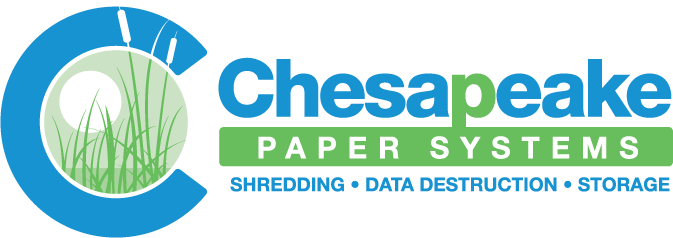
One-time shredding isn’t on a per piece basis, that’s a very costly choice for people who don’t currently have a demand for regularly scheduled paper shredding. If you’re downsizing, moving, reorganizing internally, or simply looking for a more cost-effective solution, a mobile shredding service can really help with secure document destruction! This type of service can provide a one-time-only shred and then allow you the freedom to manage your files more easily while not worrying about space issues. It can also offer a more secure way to dispose of shredded documents once you’ve finished the job.
The mobile shredding service will transport your confidential material to a secure destruction site. They can shred the information in a secure environment, such as at a facility that shreds sensitive documents for businesses or the government. Most services will have the same or similar security measures, including random security screening to make sure only trusted employees are provided with sensitive materials. The company will securely destroy the shredded papers immediately after the transaction has taken place.
Locking, Secure Consoles
Mobile shredders use multiple bins to securely destroy documents. Each bin is generally labeled with the shredded document so that you know exactly which bin contains the information you want to be destroyed. Depending on the size of your business, this could mean the difference between disposing of a large number of files and keeping some of them. The more information you have shredded, the larger the number of bins and storage areas you will need. The number of containers can range from one to five. You may even have access to larger, reinforced bins to store shredded materials for longer periods of time.
One-time shredding containers are designed specifically to store and transport documents. This means documents can be placed into one of the boxes, stacked in a manner that is secure and safe, and then secured with metal shelving or plastic bins. These containers are designed to be closed and opened as few times as possible. You will have the ability to secure these bins and their contents, ensuring that confidential information stays destroyed for a long period of time.
One-time shredders are used during a purge project when a business must purge a large number of documents. If not done properly, the resulting information can be too mixed up and difficult to sort out. If you need to purge documents quickly, a one-time shredding container will be perfect for your needs. The company will destroy the shredded papers immediately, leaving you with little waste and little work.
The Benefits of One-Time Shredding
Using one-time shredding services offers many benefits. When your documents are shredded, they will be destroyed completely, leaving no paper behind and no place for germs to grow. The shredded documents will also not have the chance of being reconstructed. This can be very helpful if you need to review documents that were shredded. You will be able to identify specific pages and you will be able to look at a comparison chart to see exactly which parts of the document were destroyed.
A one-time shredding services company can also help with the creation of a Certificate of Destruction for the shredded papers. Once the purge shredding service company removes the documents, they will provide you with a Certificate of Destruction that will identify what papers were destroyed and when.
When a company is looking for ways to secure document destruction services for their confidential information, then they may want to consider a one-time shredding program. Many companies offer this service to businesses that are interested in doing secure document destruction. If a company does not offer this option, then you may want to look at another company that can offer this type of protection for your confidential information.
Call or contact Chesapeake Paper Systems for reliable, effective document shredding services.
Community Shred Gaithersburg, MD
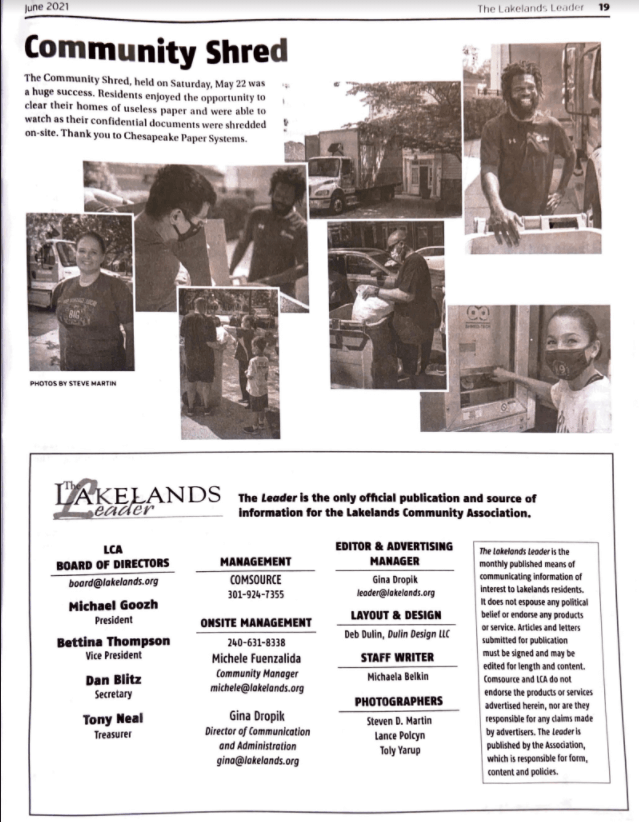
The Community Shred held on Saturday, May 22 was a huge success Residents enjoyed the opportunity to clear their homes of useless paper and were able to watch as their confidential documents were shredded on-site.
Thank you to Chesapeake Paper Systems.
The Leader Is the only official publication and source of Information for the Lakelands Community Association.
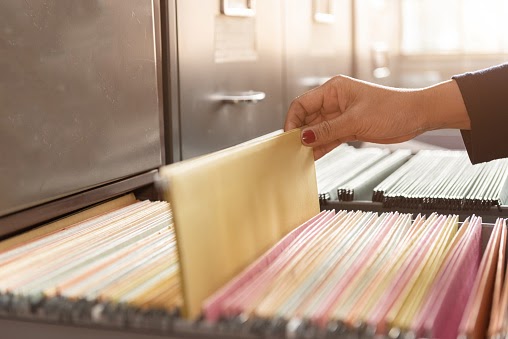
Often scheduled shredding services are designed specifically for businesses that generate confidential document waste during the course of performing day-to-day business functions. They ensure your documents are disposed of according to privacy legislation and increase compliance amongst employees. Many companies have no problems with disposing of documents at recycling centers, but a majority of companies would prefer that their documents are disposed of in an environmentally responsible manner. A majority of corporations are constantly being fined and held liable for the disposal of confidential corporate information. A professional paper shredding services are an ideal choice for companies who wish to recycle their waste and reduce their liabilities. This article will provide a brief introduction on how such an organization can help your organization.
Compliance Made Simple
Federal and State privacy legislation creates guidelines that dictate how an organization should dispose of confidential corporate information. Guidelines range from avoiding sharing client information with an unauthorized third party to shredding documents that contain sensitive personal or business information. When shredding documents that are confidential and sensitive it is important to destroy the documents as soon as possible. An experienced shredding company like Chesapeake Paper Systems will advise you on how much time it will take to destroy confidential documents that are in a paper or cardboard format.
Enlisting the services of a professional paper shredding company that provides scheduled document destruction can be crucial to comply with government regulations. These professionals can also advise you on how to best meet your disposal needs. It is important to adhere to deadlines for shredding documents that are sensitive or highly sensitive. Failure to comply could result in fines or charges, which could severely impact your company. If an audit is conducted, it can reveal if your company is in full compliance.
The Shredding Process
The shredders used by scheduled shredding service companies come complete with different sized bins and cabinet styles. These bins are specially designed to securely restrain paper and other documents to ensure they remain confidential. A variety of cabinet styles is available to meet your requirements. Some require access through a keypad, while others are completely lockable and inaccessible.
When utilizing a scheduled shredding service, it is imperative to keep one key piece of information in mind: the bins that are used to store shredded papers and documents must always be secured. For example, wooden bins should be locked and stainless steel bins should be secure. If locks are not used, then it is recommended that employees use metal handheld metal detectors at all times. Detailed instructions will be provided when using these detectors. Security is as important as privacy and confidentiality when disposing of highly sensitive and confidential documents.
In addition to providing security when disposing of documents, scheduled shredding services also help to maintain the privacy of documents. It is common practice to discard any papers or documents that have been shredded, but this does not help to keep documents secure. Paper shredders help to preserve the integrity of every record that has been shredded. It helps to protect against identity theft by helping to prevent a person from being able to access pertinent information or documentation. The majority of paper shredders are equipped with multiple security features including that the documents are destroyed on-site, that shredder is operated electronically, and that it is protected by multiple levels of security.
Affordable & Convenient: What’s Not to Like?
If you are looking for a convenient way to dispose of important papers and documents without incurring additional expense towards shipping, then an on-site scheduled shredding service is for you. Scheduled shredding programs are available throughout the United States and in Canada. Companies specializing in document destruction can come to your location, shred any documents that are no longer in use, and place them securely in secure containers. This helps to maintain the privacy of your confidential records and prevents the destruction of any further valuable information or documentation.
Most companies offer the convenience of scheduled destruction through email so that there is no physical paperwork involved. This also makes it possible for you to schedule the destruction of important documents at any time. Some scheduled shredding services are provided on an on-site basis, where the company shreds the documents at the location that is closest to the customer. This also offers you the added convenience of knowing that your confidential documents will be destroyed at the correct time when you are most likely to access them. These types of services are ideal for businesses and individuals that may need to destroy sensitive information that is currently on paper or documents that could be vital to someone’s current job situation or career advancement.
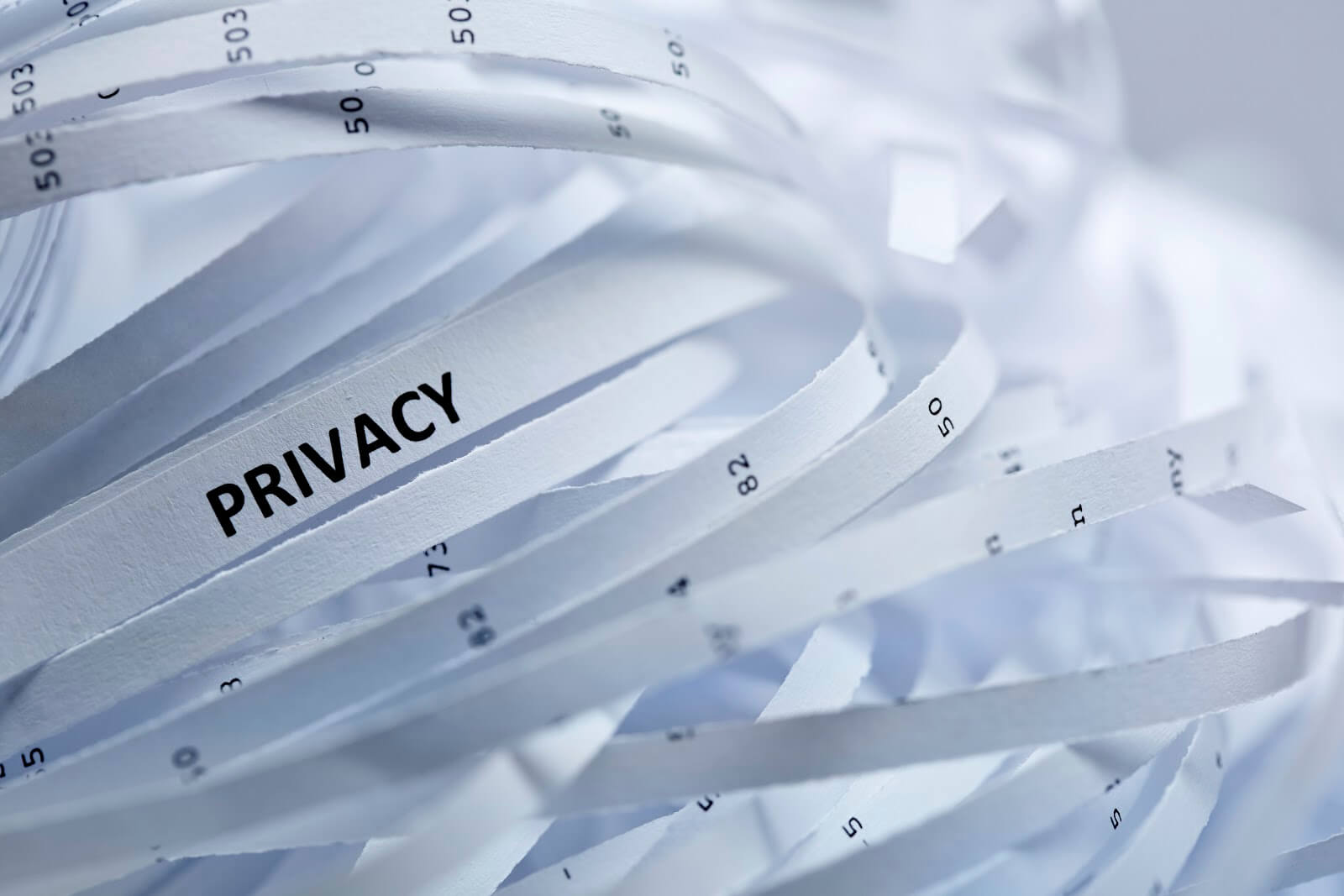
Commercial and residential shredding service providers to provide fast, convenient, and affordable document destruction. They are available in most cities throughout the United States. When you have a lot of papers, it is best to shred them all at once. This will save you time in the long run. You can also cut down on waste disposal by having one service takes care of all the paper cutting that needs to be done. This way, you do not need to hire more people just to get rid of your unwanted papers.
Residential Shredding Options
Residential shredders come with different options for different jobs. Commercial shredders provide secure document destruction at home or a business site. The options range from basic shredders that shred paper into thin pieces to more complex options that destroy paper using electromagnetic beams. Residential shredders offer convenience in a pick-up at your location or on-demand destruction. You can either order your shredding appointment online or drop off your documents at any number of locations throughout your city.
Document shredders have become a popular choice among homeowners who are worried about identity theft. Homeowners can shred their own documents as well as those of friends and family. Document shredders are also convenient for people who work from home because it’s very accessible and there is no chance of losing important paperwork. Shredding your own papers can also be convenient because it helps you keep track of the piles of papers that pile up in your office. It can also be convenient if you want to shred personal papers that contain private information that only you and your family should have.
Why is Residential Shredding Necessary?
At first glance, it may not seem like residential shredding service companies are necessary for sensitive documents. After all, what is the purpose of having a secure destruction facility when you don’t need to store such documents? Actually, there are several good reasons for doing so. First, homeowners need to be aware of the dangers posed by identity theft. Secure destruction facilities can help homeowners safeguard their most valuable possessions, such as financial documents and social security cards.
Identity theft occurs when a criminal has your personal or financial information to use for his own gain. Criminals can use such information to obtain credit or open bank accounts in your name. Security measures such as identity theft alarms and stickers can be effective tools in deterring identity theft and helping you recover the stolen property. However, the easiest way to prevent such crimes is to safeguard your most important documents. Bank and credit card statements, for instance, should be destroyed in a secure environment immediately after shredding to avoid being photocopied.
High-Quality Document Protection
If you use social security or tax records, shredding them yourself can also be convenient because most government agencies will not accept destroyed documents as valid identification. Moreover, shredded documents contain sensitive personal information that can put both you and anyone who may be interested in getting a copy of your documents in serious danger. By shredding your documents yourself, you eliminate the possibility of being accused of identity theft. Shredded paper also reduces the risk of fire hazards posed by the paper that may have been stored improperly.
In addition, shred papers at home to save the environment. Trees are eventually harvested for the manufacturing of paper. To reduce your carbon footprint, it is better to shred paper at home rather than throw it away.
Finally, paper shredding is an affordable method to prevent identity theft. It is important to note that these machines are not cheap, and homeowners may need to spend a few hundred dollars to purchase a shredder. Also, such equipment takes up valuable room in one’s house or office. When purchasing paper shredders, make sure that it is the right size and model for your needs. Check out shredding companies online to learn more about their products so you can make the best decision for your home or office.
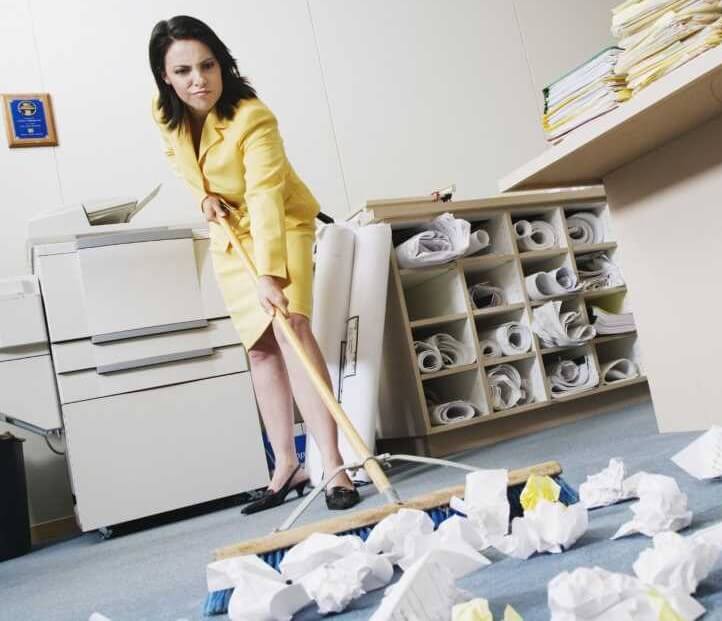
Mobile shredding is a growing trend in the security industry. You see it in TV, newspapers, magazines, and even on the newsstands. But why is mobile shredding so convenient? Why are so many companies choosing to use mobile shredding services?
The answer lies in how paper and document shredders work. They have a large rotating shredding wheel that is capable of shredding paper into smaller pieces. To work, the machine needs to make several passes over the piece of paper. Once the data destruction is complete, a portable container or storage unit is placed underneath the device for safekeeping.
Professional Grade for Serious Security
This type of data destruction is often associated with companies that deal with sensitive documents. Companies such as the CIA, FBI, IRS, and others use mobile shredding service in order to protect confidential information. Those agencies must rely on professional shredding services because it can be very difficult and time-consuming to manually shred documents. It is also not cost-effective to hire a staff of personnel to manage this task. The best solution would be to outsource this task to a company that specializes in mobile shredding machines.
A mobile shredding service offers many benefits to businesses. One benefit is reducing waste by eliminating paper. This is particularly helpful in large metropolitan areas where landfills are filling up at an alarming rate. If you eliminate paper from your business, you’re also eliminating the need for more landfills.
Another benefit is the security that mobile shredding services provide. When a paper shredder is used professionally, it provides the same level of security as a regular desktop shredder. These devices are equipped with safety features that prevent identity theft and ensure your data is not leaked or compromised.
Environmentally-Friendly
The mobile shredding service also offers paper recycling. Many companies realize how many paper products they are throwing out each year. By using mobile shredding machines, you can help reduce the number of paper that are dumped into landfills. In addition to helping the environment, mobile shredding services also help save money by reducing costs associated with paper recycling.
There are many different mobile shredding service options available. You can choose a company based on reputation, experience, or price. It’s important to compare mobile shredding services to get the best value for your money. With so much competition, there are more than a few companies out there that offer top-notch mobile shredding services.
With a mobile shredding service, you can quickly and easily dispose of personal and confidential information. This is especially critical if you work for a small business that requires sensitive information to be destroyed. There is no longer a need to hire an expensive shredder. Instead, simply use a high-end mobile shredding service and dispose of any important documents safely and securely.
Fast & Effective Document Shredding
One of the best things about mobile shredding services is the speed at which they work. Once an item has been shredded, it is literally destroyed from the moment the device makes contact with the material. This means that there is no pre-determined time period for destroying the document. Instead, once the device makes contact with the material, the shredder takes care of the job. This is important because any sensitive information would certainly be destroyed sooner rather than later.
Another benefit of choosing a mobile shredding service is the security that is provided. Typically, the company will install a security system that will ensure all documents are destroyed at the same time. This is done through a scanner that allows the machine to see exactly what is inside of the paper. If anything is found, the document will be destroyed immediately.
Choose Chesapeake Paper Systems for Your Shredding
There are several different mobile shredding service providers available. It is a good idea to make sure the one you select is established and reputable. To find out whether or not the company in question is secure, you can look up customer reviews online. Those that have experienced firsthand the benefits of a mobile shredding service may be able to offer some helpful advice to those looking to find one.
Finally, it is a good idea to check the cost of using a mobile shredding service. Most companies charge according to the amount of paperwork they will shred. However, you should take into consideration the time it will take for the shredder to come to your location. If you need your documents destroyed quickly, then you might want to consider a company that charges by the hour. When in doubt, just call and ask about their pricing.

Document destruction is a hot issue these days, as hackers obtain and destroy documents that are on the company’s desks. Companies have many safeguards in place to try to prevent the exposure of their confidential information. Many companies store sensitive material on computers or hard drives, rather than shredding the physical document. This poses a security risk and compromises the confidentiality of your company if it’s not protected with document shredding.
Document shredding in Baltimore offers robust protection against threats. Because of our security program at the city level, only those who need access to a specific document are given access to it. That way, the company can make sure that only the intended recipient has read the document. And with shredding services available to book on the internet, it’s easy to shred a document for a small fee.
Part of Information Management
Document destruction is just one part of the overall security program at many companies. One of the primary concerns of companies is the theft of sensitive personal and financial data. In addition, companies are concerned about the exposure of their intellectual property in the wrong hands. By shredding documents, we can reduce the risk of either of those problems.
Document shredding is effective because of the paper cutting equipment. Typically, shredding machines shred all document edges, including the paper binding. The result is a document that is almost impossible to re-create. Only documents that contain information that can’t be restored are truly destroyed. But even documents that can be reconstructed can be sensitive information that can put your business in jeopardy if it’s compromised.
Document shredding is carried out by professionals who use specialized equipment. Depending on the sensitivity of the document, the company may need a team of personnel to destroy the document. Companies with sensitive documents often employ security consultants to manage document destruction. There are even companies that specialize in shredding paper. In any case, hiring a document destruction firm is a good business practice.
First Shredding, Then What?
You need to know what kind of documents you need to be destroyed. Your company probably doesn’t need sensitive corporate or confidential information destroyed. In fact, you want to keep that information in physical form rather than putting it on a computer that anyone can access. If you want to secure highly sensitive information, you’ll probably want to shred the papers before throwing them away. Otherwise, the information could be retrieved by an unscrupulous employee.
Once documents are shredded, they’re gone for good. Companies may choose to shred records rather than burn them. Even though paper shredding is effective, some companies choose to incinerate documents rather than shred them. You can also purchase document shredding equipment that will turn a paper document into dust when it’s removed from your computer.
No matter what option your company chooses for document destruction, you should make sure that the process is done properly. You don’t want to destroy important information just to have your information saved on a disk or hard drive. Also, try to use an experienced document destruction company to make sure your information is completely destroyed. A good company will be able to shred all your documents and make no remnants.
The company should also use high-tech equipment to shred your documents. Some companies use electromagnetic equipment to destroy the document. The high-tech equipment will literally cut the paper into very small pieces. After the destruction is complete, the pieces are then placed into protective bags. You’ll be able to retrieve the bags after the document is removed from the company.
You may also choose to shred documents yourself. This is a perfectly acceptable method. Just be sure you fully understand the destruction of any documents that you intend to shred. Some states require that you shred certain documents at government facilities before you can start shredding them.
Ultimately, you must be very careful about document destruction. If you must shred certain documents, do so in a very secure environment. Then, follow up with a professional company to ensure your documents are destroyed. You don’t want anyone gaining access to your files after the shredding is complete!
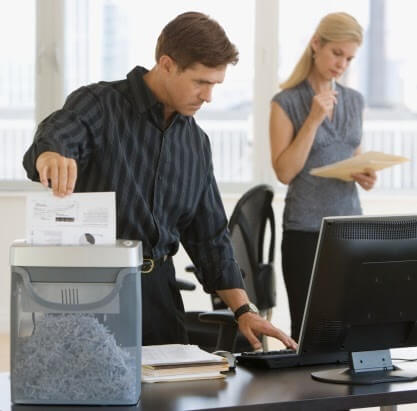
Paper shredding is an affordable option to safely dispose of unwanted or confidential documents in the workplace or at home. With safe document shredding, you safeguard sensitive business information or customer or employee data printed on many types of documents. It is an affordable way to protect your documents from identity theft and prevent them from being damaged or lost. A good shredder can help protect your identity from being stolen by stopping your documents from being reconstructed by other people. This can be useful if you are going to give a hard copy of your document to someone for a certain purpose.
Your home or office needs a paper shredding service to properly protect your information securely. You can choose from a variety of shredders available depending on the type of document that you want to shred. The different types of documents include credit cards, medical records, tax return, bank account, utility bill and many more. Shredding sensitive documents is important to maintain confidentiality. These types of information must be properly disposed of to maintain peace of mind and prevent identity theft. There are several benefits of using a professional paper shredding service.
Professional Shredding for Home & Work
The first benefit is to protect yourself and your family from identity theft. Identity theft is a serious crime that compromises the privacy of individuals. By disposing of your confidential documents securely, you will reduce the risk of identity theft and protect your family from this danger. This makes the paper shredding service very important and it is a reliable way to securely dispose of your confidential documents.
Document shredding services are also important for reducing the cost of document management. By disposing of your documents in a safe manner, it reduces the cost of document management. By utilizing proper storage methods, document shredding services help save money. When documents are securely disposed of, it also helps maintain document management thereby reducing the cost of document management. This leads to more time for you to accomplish other important tasks and hence improve your efficiency.
Disposal of sensitive information or documents is extremely important for various reasons. When documents are shredded, it helps safeguard your company from identity theft. It also helps reduce the cost of paper shredding services. Hence, by disposing of your documents securely, you can effectively protect your business from identity theft.
Residential Shredding
You can also protect your sensitive documents by shredding them at home. When you shred the documents, it ensures that they are destroyed safely and securely. This will help in maintaining better security in your home and at your place of work.
The process of shredding documents at home or work is very easy. You just have to contact the service provider and give them instructions regarding the number of sheets you want to be destroyed. They will send you the equipment that you need to secure the information. Once you have the equipment, you can start the destruction process.
Shredded documents are highly secured, as it reduces the risk of identity theft. You need not worry about security when you shred your documents as the shredded papers can be properly stored and handled. Once the paper shredding companies are done with the destruction of the documents, they will safely store them. This way, you can ensure that the information is completely secure.
The Importance of a Good Shredding Company
To ensure that the information is completely destroyed, you have to inform only those who really need to see the information. It is not advisable to destroy confidential documents. This is because you might disclose the information to someone who is not supposed to know about the shredding. It might endanger your business and the relationship with your clients.
Paper shredding companies ensure that your business is protected by professionally destroying the documents. Therefore, you can be sure that you will never be cheated by any company. They will take care of your security so you don’t have to worry about security.
You can ask Chesapeake Paper Systems to shred any document that contains any sensitive information. It has high-security encryption technology so you won’t worry about the security of your documents. Chesapeake Paper Systems guarantees to deliver the results in a professional manner. You can trust our security, and that all documents are shredded professionally, neatly, and securely.
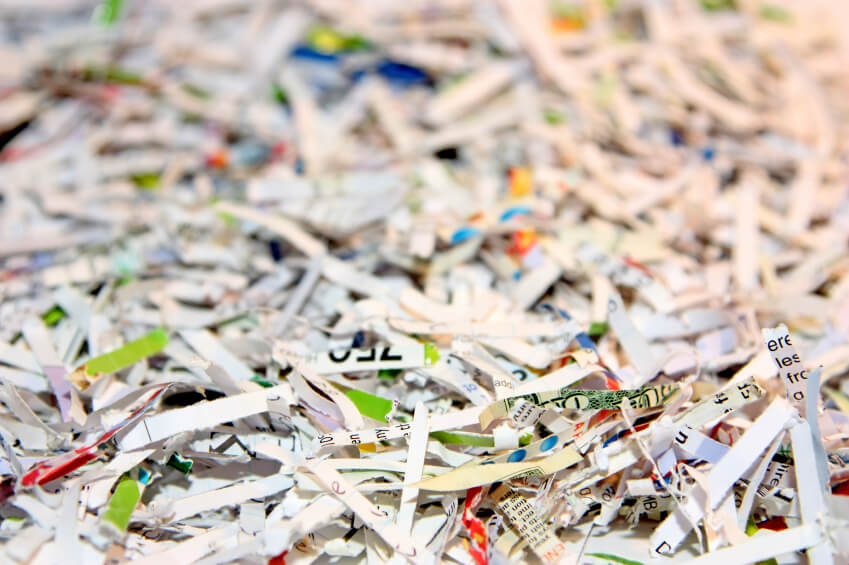
Mobile shredding services offer a wide variety of different advantages to allow you to shred your personal documents safely. Mobile shredding service companies take the extra step to destroy any documents that are in the process of being shredded. The shredder will cut up the documents and place them into a container that will be sent to a recycling center. Most mobile document destruction service companies will destroy the documents before you get them as well. This is a precaution to safeguard the sensitive documents that you provide them with.
On-Site Document Destruction
If you’re looking for absolute security, a professional paper shredding company should be able to protect all of your important documents at their shredding facilities. They will have on-site security with several high-tech security measures in place. The most common measures include video monitoring, an alarm system, and a team of highly trained professionals who are onsite twenty-four hours a day.
Mobile Shredding Trucks
There is more than one type of mobile shredding service truck. Some specialize in big shredders that can shred up to thousands of sheets of paper at one time. These machines are usually used by large corporations and law enforcement agencies. Other shredding companies make use of smaller shredding equipment that shreds paper into very small pieces. These machines are great for home and personal use because they are easy to transport and they are able to get rid of large amounts of paper at one time.
Protection
With mobile shredding, you always get to see the process unfold. Hiring a mobile shredding service company requires trusting that they properly handle it and that they follow it with safety and security. You never know when someone will receive copies of your personal documents, or when they will break in or steal the documents themselves. That is why it is important that you hire the best shredding service in town.
Equipment
Mobile shredding service providers usually provide a variety of different machines for different purposes. The most common types of equipment used by these services are paper shredders, plastic shredders, and cross-cut shredders. A shredder will generally consist of three main components.
One, the motor which is responsible for turning the machine on and off, is located on-site, so the company must pay to have it installed. Two, the blade is secured inside the shredder housing and it is the area that the customer accesses. Lastly, there are secure containers that contain the shredded documents. It is important for the mobile shredding service to provide their clients with a secure container in order to transport the documents from one location to another.
Security
When shredding documents it is important to have a highly secure environment in which to perform the process. It should contain multiple security measures including a loud alarm, lights, and fences so that someone is always aware of what is going on. Mobile paper shredding services should also provide a large space for employees to work. All of this will ensure that documents are not lost or misplaced, as well as prevent customers from being in a position in which they could become the victim of theft.
Mobile shredding is an excellent way to protect business and personal information. Paper shredding trucks are able to quickly and easily transport documents in a safe manner from one location to the next. These trucks come with high-powered shredders that shred paper up to 3 inches thick. Most paper shredding services use high-security shredders in order to keep the information confidential.
Secure Bins
Most services offer secure bins in which documents can be shredded. The bins are large, solid, and have a locked lid. These bins are made to be very hard to open from the outside. A shredder is placed inside the secure bin, and the paper is shredded until it is completely gone.
Destruction of Business Records
When a customer asks for the destruction of business records, the service will first check to see if the records are truly deleted. If they are not deleted, the service will request a receipt. The receipt will state that the records were destroyed and the customer will be billed for the total cost of the destroyed records. This method is used because it is a simple process to determine if the records were actually deleted from the computer. However, it is also a one-time event.
When shredding large amounts of paper, companies may choose a shredding service that uses paper shredding machines. The shredding machines are often called paper shredders. They are large, powerful machines that shred paper into smaller pieces than what can be destroyed by a shredder. The shredding machines are stationary and cannot be moved around to destroy different papers.

Protect your business’s confidential information with regular scheduled shredding services from a professional commercial paper shredding company in Baltimore. Scheduled shredding not only ensures that your sensitive documents do not pile up, keeping the organization at all times heightened, and of course increased safety levels at your office. It also protects your employees and business from the hazards of improper paper disposal. Paper shredders prevent information theft by completely cross-cutting the paper once it’s inside the shredder, thereby making it impossible to reconstruct the paper using any other tools. Professional shredders also eliminate office paper jams and improve document flow and organization.
Why Shredding is a Well-Kept Secret
One of the main reasons that many businesses do not turn to scheduled shredding is that they do not have an understanding of the benefits of this service. Many small businesses do not realize how much paper their current organizational system can handle, and how much time it takes to shred paper regularly. The number one benefit of scheduled shredding is that it reduces waste because paper can be shredded while it is still in the process of being created. If you are using multiple different machines for shredding different types of documents, this will drastically cut down on your waste.
Another benefit of scheduled shredding is that it is very cost-effective, especially for businesses that do not store large amounts of documents. When paper is shredded on a regular basis, a large amount of paper can be eliminated from your office, saving you money on paper, ink, electricity, and space. In addition, shredders often come with a professional shredding company, allowing your shredder to be emptied and serviced when you need to. You should not have to pay an arm and a leg for professional service, as these companies should be reputable and able to provide a high level of service. Schedule the shredding services when you need them most, to ensure that your files are destroyed on schedule, and always keep the number for your local shredder in a safe place, just in case of an emergency.
A third of the benefits of document shredding is that it increases the security of your business. Most criminals do not want to be seen disposing of documents that have been shredded, so shredders can help protect you from anyone that might try to steal your information. Your business will be protected against identity theft, and the shredder can be placed anywhere in the office that is visible to any employees. Because it is cost-effective and very easy to use, scheduled shredding can help your small business reduce the amount of paperwork that it produces on a routine basis, which can save valuable time and money in the long run.
When Should You Shred?
Many companies also choose to schedule shredding at certain times of the week. For example, companies that receive a lot of paperwork during the holiday season may choose to schedule the shredder after Christmas. The shredder will shred all of the holiday cards, wrapping papers, and envelopes that come into the office. This ensures that all of the paper documents are destroyed on the day after Christmas, and none of the documents will have the chance to be shared with others.
Preventing the destruction of important information is another benefit of shredding documents. It will prevent you from being held accountable if the information in the paper is lost or stolen. Shredders are not known for bringing back lost or stolen documents, so it is very unlikely that this will happen. This can prevent costly litigation if the information is lost or stolen because you won’t be able to take the case to trial. Scheduled shredding of your paper can reduce the number of hours that you need to print out documents, which will save you money on paper, ink, electricity, and more. The shredder will also prevent you from replacing damaged paper with new paper which can also save you money.
There are several benefits of scheduled shredding that you should consider. Scheduled shredding allows you to make sure that you are taking advantage of all of the time that you have daily. This will allow you to enjoy the benefits of shredders while saving time, money, and paper.
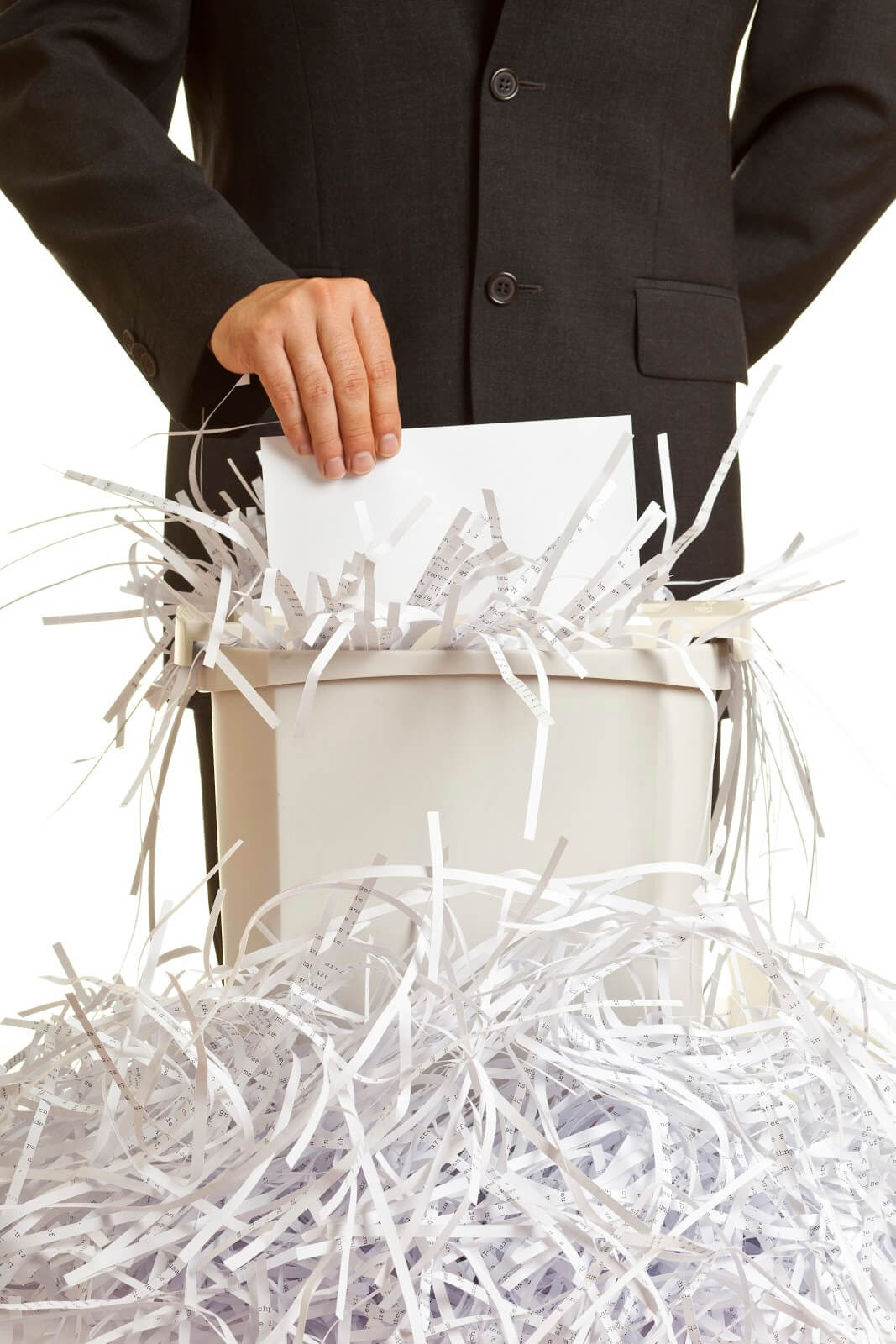
Mobile shredding is among the most helpful services which offer unmatched security. Yet, the funny thing is there get many more questions regarding what mobile shredding actually is. So, this article is going to clear it all up: exactly what mobile shredding consists of, how you want secure document shredder boxes, and some other options other than mobile shredding which may work better for you. After reading this article, you should have a good idea of what mobile document shredding is and what its purpose is. Plus, you should also have an understanding of what identity theft prevention is all about. This information will definitely come in handy when you need to choose a mobile shredding service.
High-Quality Paper Shredding
When you need a mobile shredding service, you want to look for what type of shredder they are using. They can either use mobile or desktop shredders, but it would be safer for optimum protection if you go with the latter since you do not want your important documents to get into the wrong hands. Using desktop equipment can compromise your entire system since documents are shredded on the physical hard drive.
Another question which you may be wondering is why secure containers for document shredding are needed. Secure containers for mobile shredding service come in handy especially in situations where there is a chance that the people working at the job could also be targeted by identity thieves. If they use their mobile shredders in a secured container, then identity theft is prevented. Also, consider the amount of money that needs to be invested. What is more, it will also protect you from the costly task of having to replace expensive hard drives which are completely destroyed.
When choosing a mobile shredding service, make sure that you know how your documents are being shredded. Secure document shredders shred paper documents while keeping the original copy. Some companies will even allow you to have one document shredded while having the rest of your papers shredded. This is ideal when you want to minimize the chances of anyone reconstructing your important documents.
Mobile Shredding Trucks
Mobile shredders also have mobile shredding trucks, which will come to where you are. With this advantage, your work area is secured and safe from any type of threat whether they come in the form of identity theft or a malicious virus. Secure containers for document shredders are made in such a way that they can also shred any type of plastic media. The trucks come equipped with large shredders for larger jobs. These shredders are able to shred paper, CDs, DVDs, and any other type of media that can be destroyed.
With mobile shredding service, you no longer need a portable office shredder as these trucks are designed to shred any materials that are too large to fit into most office shredders. These trucks come equipped with large industrial shredders. They can easily shred paper, plastic, and any other type of media that can be shredded.
100% Complete Privacy
If you want total privacy while your sensitive documents are being shredded, then mobile shredding services are perfect for you. You can shred any type of documents and papers that you want as long as they are in plastic bags. Most mobile service companies have shredders that are equipped with scanners that will effectively decipher any secret messages in your documents. Using their large industrial shredders, they will securely shred any document and paper you want.
Mobile shredders come with bins in which you can securely store your sensitive information. Most of these bins come with secured locks and filing cabinets so that your documents are safe from theft or burglary. You can also choose bins that have shutters for additional security. These closed bins will further safeguard your sensitive information until it can be safely shredded.
